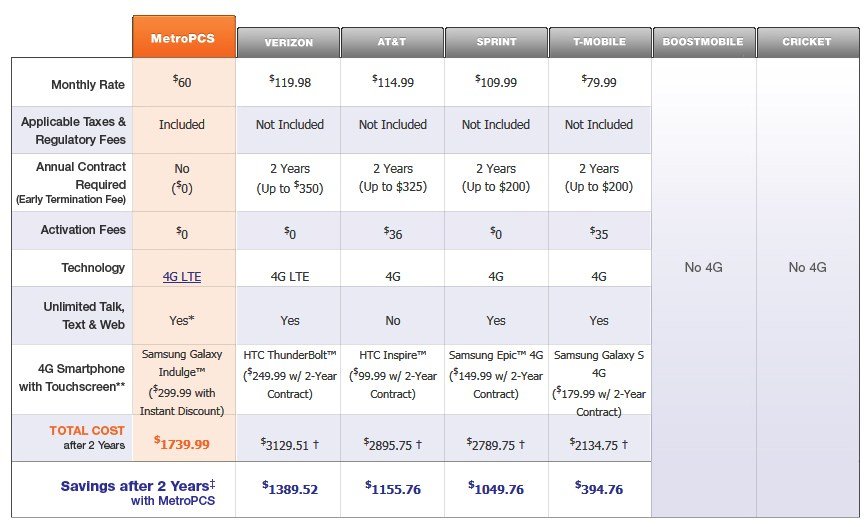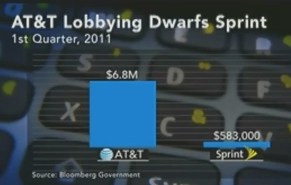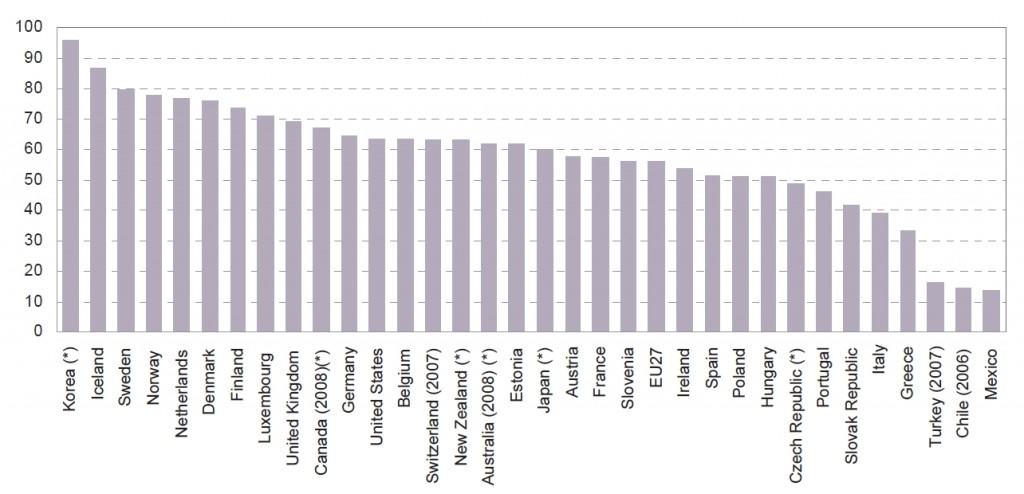MetroPCS pitches its 4G/LTE plans to customers looking to save money over the bigger players in the marketplace. The upstart provider, based in Richardson, Texas, serves just over a dozen major metropolitan areas with no-contract plans that deliver lower prices in return for smaller coverage areas. As larger providers heavily sell their “next generation 4G” networks, MetroPCS has also been promoting their own “unlimited talk, text, and web” 4G/LTE plan that offers an “unlimited” experience for $60 a month. But there is a catch, only revealed when customers click the fine print link that opens the Terms of Use. The document is a poster child for Net Neutrality, because it allows the company to block, throttle, prioritize, alter, or inspect any web content.
Here is what MetroPCS advertises:
Here is a selection of the Terms and Conditions which tarnish a great sounding deal (underlining ours):
You acknowledge and agree that the Internet contains Data Content which, without alteration, will or may not be available, or may not be providable to you in a way to allow a meaningful experience, on a wireless handset.
You acknowledge and agree that such alteration that MetroPCS may or will perform on your behalf as your agent may include our use of Data Content traffic management or shaping techniques such as, but not limited to delaying or controlling the speeds at which Data Content is delivered, reformatting the Data Content, compressing the Data Content, prioritizing traffic on MetroPCS’ network, and placing restrictions on the amount of Data Content made available based on the Agreement. You further acknowledge that MetroPCS may not be able to alter such Data Content for you merely by reference to the Internet address and therefore acknowledge and agree that MetroPCS may examine, including, but not limited to Shallow (or Stateful) Packet Inspection and Deep Packet Inspection, the Data Content requested by you while using the MetroWEB Service to determine how best to alter such Data Content prior to providing it to you.
If we notice excessive data traffic coming from your phone, we reserve the right to suspend, reduce the speed of, or terminate your MetroWEB Service. In addition, to provide a good experience for the majority of our customers and minimize capacity issues and degradation in network performance, we may take measures including temporarily reducing data throughput for a subset of customers who use a disproportionate amount of bandwidth; if your web and data Service Plan usage is predominantly off-portal or otherwise not provided by MetroPCS during a billing cycle, we may reduce your data speed, without notice, for the remainder of that billing cycle. We may also suspend, terminate, or restrict your data session, or MetroWEB Service if you use MetroWEB Service in a manner that interferes with other customers’ service, our ability to allocate network capacity among customers, or that otherwise may degrade service quality for other customers.
MetroPCS also wants customers to know their service is not intended as a home broadband replacement, and states it is only to be used for basic web services, including e-mail and web browsing and downloading of legitimate audio content. Video streaming is naughty.


 Subscribe
Subscribe




